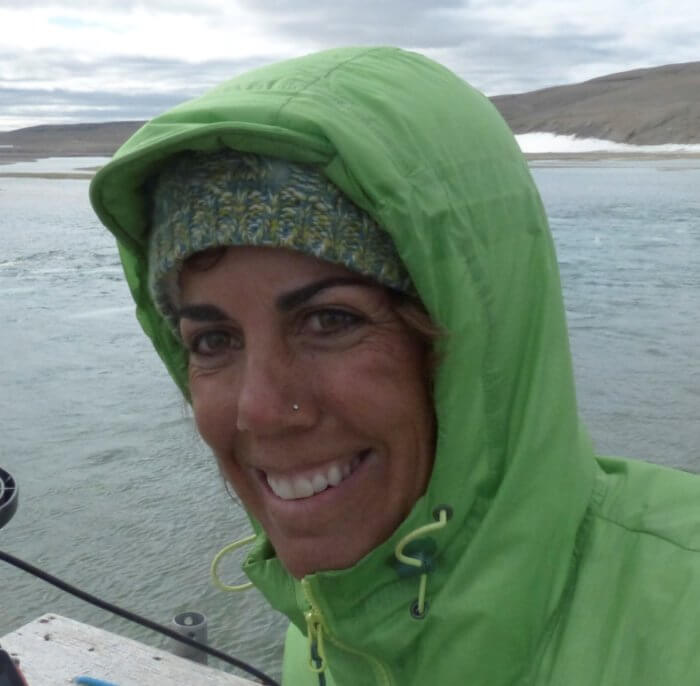Valeria Vergara

Valeria Vergara moved from Argentina to Canada in 1989 to pursue her passion for biology, aided by a full scholarship from the Canadian International Development Agency. She holds a B.Sc. in Biology and a Masters in Behavioral Ecology, both from Trent University in Ontario, and a Ph.D. in Zoology from the University of British Columbia. She is primarily interested in the communicative, perceptual and cognitive capacities of marine mammals and the conservation implications of such capacities. She currently co-directs the Cetacean Conservation Research Program at Raincoast Conservation Foundation.
Valeria has participated in a diverse array of wildlife field studies around the world, including coyotes in Yellowstone National Park (her B.Sc. thesis), endangered Darwin foxes in Chile, red foxes in rural areas of Ontario (her M.Sc. thesis), baboons in Kenya, grey wolves in Minnesota, and a number of cetacean projects such as humpback whales in Newfoundland, killer whales in Alaska, British Columbia and Argentina, Guiana dolphins in Colombia, narwhals in Tremblay Sound, and beluga whales in various areas of Canada.
Her work since 2002 has focused predominantly on acoustic communication in beluga whales, first in captivity and later in the wild. Her doctoral research was the first to document how beluga calves develop the rich repertoire of vocalizations of this species, and to identify contact calls used to maintain group cohesion and mother-calf contact. Her beluga studies have since taken her to the Nelson and Churchill River Estuaries (Hudson Bay), the Canadian High Arctic, and the St Lawrence Estuary. She provided preliminary evidence that beluga contact calls may be true vocal signatures (functioning as “acoustic name tags”), and is currently working in the St Lawrence to corroborate this finding with photo-identified known belugas.
Valeria’s research addresses the challenges such a sound-centered species faces in its increasingly noisy environment For example, her most recent study illustrated how anthropogenic noise affects the communication range of adult and newborn beluga contact calls in the St Lawrence Estuary, and showed that masking of the quiet, underdeveloped calls of neonates by noise can impair mother-calf contact.
Valeria is an experienced science communicator, she has written multiple popular articles and research blogs, and has given numerous talks for diverse audiences. You can watch her Creative Mornings talk here. Her beluga work has been featured in various documentaries and magazines, including National Geographic, New Scientist, BBC Earth, and CBC Radio.